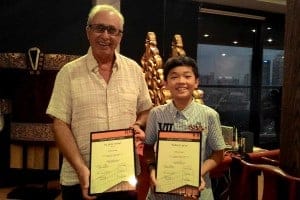Question:
Submitted by Hannah, Korea
I wonder if the activity below makes use of to bottom-up processing, top-down processing or Interactive processing.
Task: Read a sentence and then listen to a sentence on tape to decide if the meaning is the same or different.
Professor Richards Responds:
In order to complete this task the listener has to hold the spoken sentence in short term memory, decode its meaning, and then compare the result with his or her understanding of the written text. The extent of bottom-up or top-down processing involved will depend on the contents of the sentence, since it may or may not draw on background knowledge or culturally specific schemata. No interactive processing is involved if we use this term to refer to interaction with a speaker.
